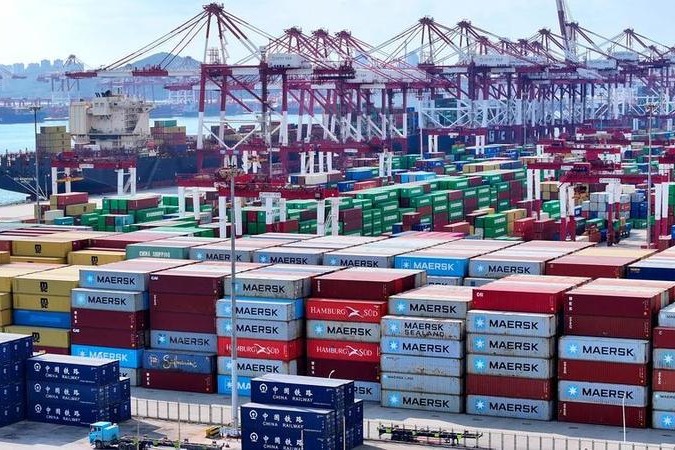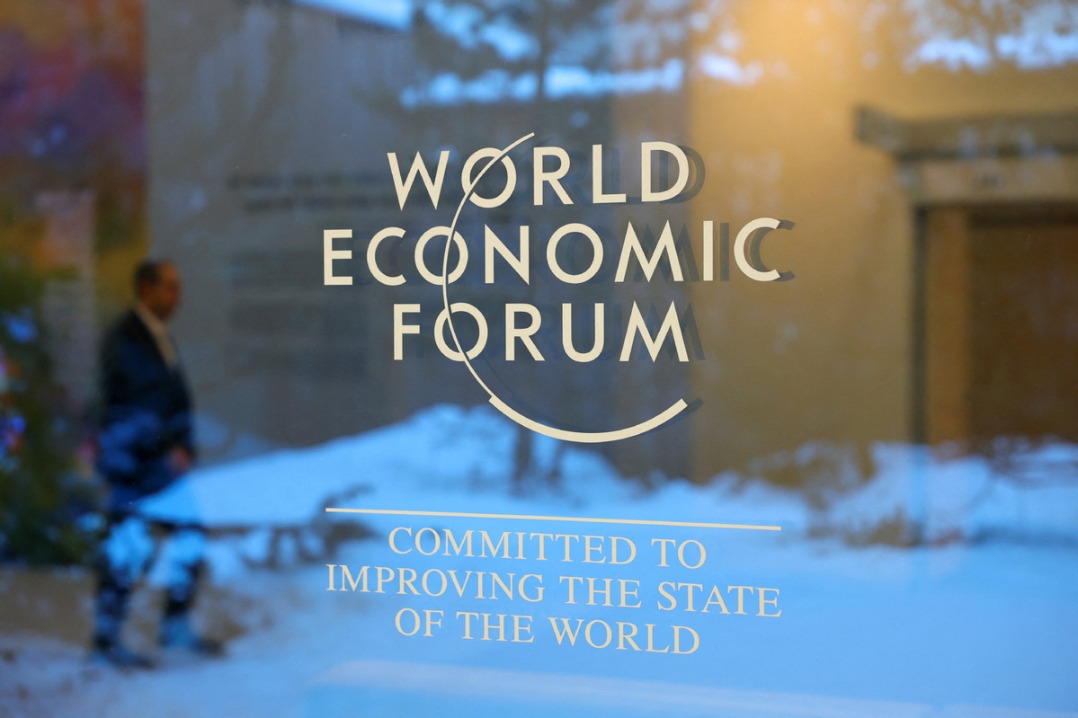Post-pandemic recovery must be green


It is imperative countries fulfill their commitments to reduce emissions
In the face of the pandemic, climate change, or any other global challenge, no country is exempt and all must stand together.
Many states have taken and will continue to take active actions to try and limit the global temperature rise. Currently, 114 countries in the world have announced that they will give an enhanced Nationally Determined Contribution (NDC) target, and 121 countries promised carbon neutrality by 2050. Even the US House of Representatives presented a report supporting the return of the United States to the Paris Agreement and promoting the country being carbon neutral by 2050.
Although the novel coronavirus crisis has disrupted the normal economic and social development of countries, the green and low-carbon development trend as determined in the Paris Agreement is irreversible, and tackling climate change remains high on the agenda of global governance and the socioeconomic development of countries.
The initiative of "recover better together "proposed by United Nations Director-General Antonio Guterres has set the path for countries to combat the climate emergency and reshape the relationship between man and nature while cooperating on pandemic prevention and control.
China attaches great importance to climate change, and takes the fight against climate change as the important strategic measure for high-quality sustainable development at the forefront of building a community with a shared future for humankind. The positive policies and actions taken by China have achieved remarkable results and the country has realized its 2020 commitments in advance.
China's GDP in 2019 more than quadrupled that in 2005, while CO2 emissions per unit of GDP were reduced by 48.1 percent from 2005, equivalent to about a reduction of 5.62 billion tons of CO2 emissions. The percentage of non-fossil fuels in primary energy consumption reached 15.3 percent. The total installed capacity of renewable energy accounts for about 30.4 percent of the total worldwide and the increase accounts for 32.2 percent of the total world increase.
These are ample evidence that China is on a green, low-carbon and circular economy development path fitted to its national characteristics.
Because of the pandemic, China's GDP in the first quarter dropped by 6.8 percent, affecting the employment of tens of millions of people.
But despite the daunting challenge facing its socioeconomic development, China aims to turn the crisis into an opportunity and find a breakthrough in change.
China will continue to apply the new development philosophy, which promotes the construction of new types of infrastructure, strengthening the development of a new type of urbanization, facilitating industrial upgrading, and developing energy conservation, environmental protection, new energy and circular economy industries.
The country will continue to actively adopt policies and actions to fulfill its climate change commitments and make greater contributions to global climate governance and to promote a high-quality green recovery.
The major task at present for global climate governance is the implementation of the Paris Agreement. This agreement and its implementation rules, sticking to the basic principles set out in UN Framework Convention on Climate Change, set the objective of holding the global average temperature increase to below 2 C, with the ultimate objective of holding it below 1.5 C, and realizing the common goal of low-carbon, climate-resilient and sustainable development. The bottom-up action model of Nationally Determined Contributions (NDCs) enhance the transparency of countries' climate actions and call for enhancing mitigation efforts every five years. They also clarify that the actions of developing countries shall match the assistance provided by developed countries in finance, technology and capacity-building.
The frequency of extreme weather events is increasing on every continent, posing huge threats to people's safety and causing great damage to ecosystems and huge economic losses.
The climate change challenge is becoming increasingly severe and urgent.
There is a big gap between the NDCs and the objective of the Paris Agreement, and enhanced actions have become the focus in the process of global climate governance.
According to the UN Intergovernmental Panel on Climate Change, carbon-neutral must be realized by around 2070 to limit the increase in warming to 2 C increase and by around 2050 to limit the increase to 1.5 C.
The global average temperature of 2017 and 2018 was 1 C higher than the pre-industrial level.
If the current emissions trends and actions of countries continue, the average global temperature will be 1.5 C above the pre-industrial level around 2040, and reach or even surpass 2 C by about 2065.
At the end of the century, the increase could be 3 C to 4 C or even higher, catastrophically more than the Paris Agreement goals. This will cause irreversible ecological damage to all countries, and will likely cause public health crises, systematic financial risks, economic recession and regional conflicts.
The UN Climate Change Conference will be held next year in the United Kingdom. It was originally scheduled for this year but it has been postponed because of the pandemic. The conference will, as per the requirements of the Paris Agreement, conclude the implementation of commitments to be realized by 2020, continue negotiations on the implementation rules for global carbon markets, the remaining problem of the Paris Agreement, update the NDCs after 2020, notify carbon development strategies by 2050, and secure financial support.
We believe that despite the pandemic, countries will step up their efforts to reduce national greenhouse gas emissions and adapt to the impacts of climate change, and that the parties will try to integrate efforts to prevent and control the pandemic and address climate change.
If the obstacles to ramping up efforts in climate actions can be readily solved, and countries adhere to the trend of green and low-carbon transformation, the realization of the goals set in the Paris Agreement is achievable.
The author is special advisor for Climate Change Affairs of the Ministry of Ecology and Environment, and president of the Institute of Climate Change and Sustainable Development at Tsinghua University.The author contributed this article to China Watch, a think tank powered by China Daily. The views do not necessarily reflect those of China Daily.


































